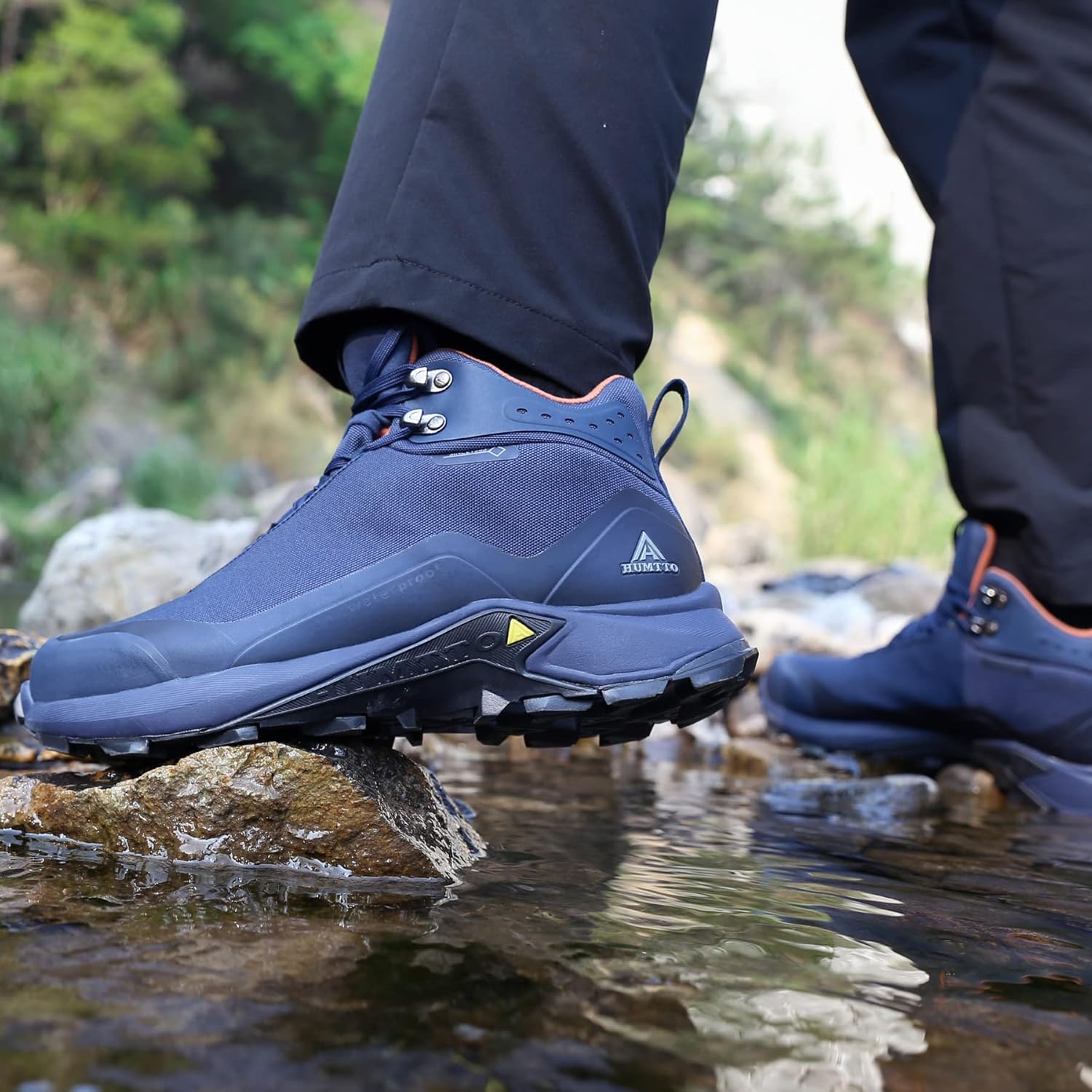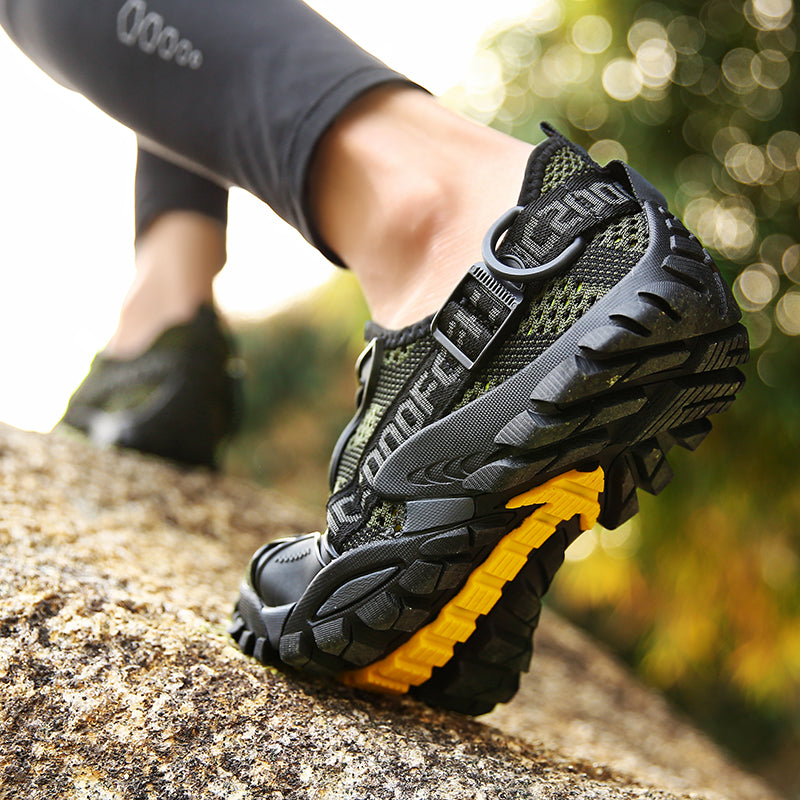As outdoor enthusiasts know, each season brings its own set of challenges and opportunities. Having the right footwear for different weather conditions isn't just about comfort—it's about safety and performance. Let's explore how to choose and use outdoor shoes throughout the year.
Spring: Navigating Unpredictable Conditions
Spring's mix of rain, mud, and varying temperatures demands versatile footwear. During this transitional season, look for:
- Quick-drying materials for unexpected showers
- Reliable water resistance without full waterproofing
- Moderate tread depth for muddy conditions
- Breathable construction for warming temperatures
Spring Shoe Care Tips
Keep your footwear ready for spring adventures by:
- Regularly cleaning mud and debris
- Using water-repellent treatments
- Allowing thorough drying between uses
- Checking for winter damage
Summer: Beating the Heat
Summer adventures require footwear that keeps you cool while protecting against sun and terrain. Key features include:
- Maximum breathability
- Lightweight construction
- Quick-drying mesh materials
- UV-resistant materials
Hot Weather Performance
For optimal summer performance, prioritize:
- Ventilation systems
- Moisture-wicking liners
- Light colors to reflect sunlight
- Anti-microbial treatments
Fall: Embracing Transition
Fall brings beautiful conditions for outdoor activities, but requires adaptable footwear. Focus on:
- Variable temperature management
- Enhanced grip for wet leaves
- Durability for rocky terrain
- Quick-transition features
Autumn Adaptability
Your fall footwear should offer:
- Versatile insulation levels
- Weather-resistant uppers
- Reliable traction patterns
- Easy cleaning features
Winter: Conquering the Cold
Winter demands the most from outdoor footwear, requiring specific features for safety and comfort:
- Proper insulation for cold protection
- Waterproof construction
- Aggressive tread patterns
- Snow and ice compatibility
Cold Weather Considerations
Essential winter footwear features include:
- Thermal insulation ratings
- Ice-grip technology
- Sealed seams
- Gaiter compatibility
Cross-Season Versatility
Some activities require footwear that performs across seasons. Consider:
- Modular systems with removable liners
- Convertible designs
- All-weather materials
- Adaptable lacing systems
Making Smart Seasonal Transitions
Storage Tips
Properly storing off-season footwear maintains its performance:
- Clean thoroughly before storage
- Use cedar shoe trees
- Store in climate-controlled spaces
- Check periodically for issues
Rotation Strategies
Extend the life of your outdoor shoes by:
- Maintaining multiple pairs for different conditions
- Allowing full drying between uses
- Tracking usage and wear patterns
- Planning replacements ahead of season changes
Investment Considerations
When building your seasonal footwear collection:
- Start with versatile options
- Add specialized pairs as needed
- Consider your local climate
- Factor in your activity patterns
Conclusion
Understanding seasonal footwear needs helps you make informed decisions and stay prepared for year-round outdoor activities. By choosing appropriate footwear for each season and maintaining it properly, you'll enhance your outdoor experiences while protecting your investment. Remember: the right shoe at the right time makes every adventure more enjoyable.




Leave a comment
This site is protected by hCaptcha and the hCaptcha Privacy Policy and Terms of Service apply.